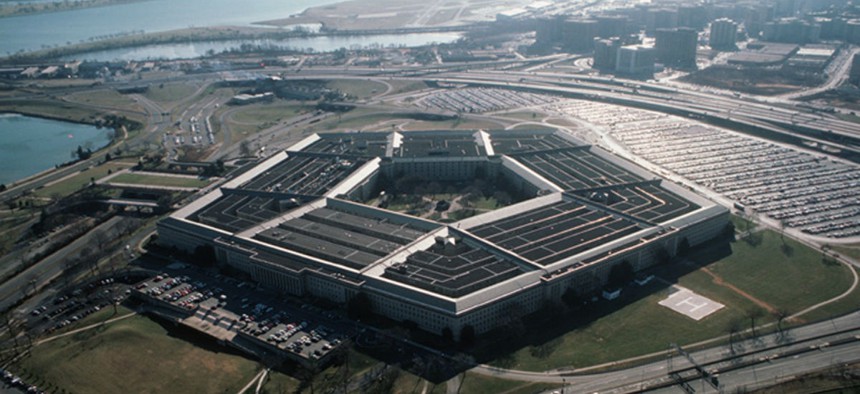
Defense Department file photo
Pentagon Rule Would Deepen Dialogue with Major Industry Contractors
Better Buying Power follow-up seeks advance notice of R&D investment.
Following through on its Better Buying Power procurement reforms, the Defense Department on Tuesday published a proposed rule that would require major contractors who seek reimbursements for their independent research and development to alert the Pentagon before committing.
Under the proposed amendment to the Defense Federal Acquisition Regulation Supplement, contractors large enough to be considered part of the industrial base would have to assure that their independent R&D efforts are “communicated to appropriate DoD personnel prior to the initiation of these investments, and that results from these investments should also be shared with appropriate DoD personnel,” the proposed rule stated.
“The intent of such engagement is not to reduce the independence of IR&D investment selection, nor to establish a bureaucratic requirement for government approval prior to initiating an IR&D project,” the draft said. “Instead, the objective of this engagement is to ensure that both IR&D performers and their potential DoD customers have sufficient awareness of each other's efforts and to provide industry with some feedback on the relevance of proposed and completed IR&D work.”
Frank Kendall, undersecretary of Defense for Acquisition, Technology and Logistics, wrote in a white paper last August that “by law and DoD policy, contractor IR&D investments are not directed by the government – they are identified by individual companies and are intended to advance a particular company's ability to develop and deliver superior and more competitive products to the warfighter.”
Those investments pay off best for both industry and government, he continued, “when the government is well informed of the investments that companies are making, and when companies are well informed about related investments being made elsewhere in the government’s Research and Development portfolios and about government plans for potential future acquisitions where this IR&D may be relevant.”
The proposed rule said the department is not able to identify how many companies, particularly smaller ones, are affected, but suggested that the economic impact would not be wide because the rule would apply only to companies that spend more than $11 million a year on independent R&D. The new rule’s “recordkeeping is limited to that required to properly record and report IR&D projects to the Defense Technical Information Center using DTIC's online IR&D database,” the text said.
Additional reporting requirements are not the problem, according to Alan Chvotkin, executive vice president and counsel at the Professional Services Council, which represents nearly 400 contractors. “For major contactors, finding the right person or groups of people to have that conversation is probably the most difficult part of the rule,” he told Government Executive. “The Defense Department is big, and a lot of people are interested in what goes on because of the very nature of independent R&D. It may be as difficult for companies as for government to know whom to have conversations with.”
Industry may be most worried about the next step, Chvotkin added, which could be “linking those contacts with DoD employees to allowable costs of independent R&D, which at its core, is what makes companies willing to invest—when the costs are reimbursable.”
The council intends to submit comments on the proposed rule.







